LAS CRUCES, N.M. — Members of an independent NASA safety panel said they were worried that the Oct. 11 Soyuz launch failure could make safety concerns with the agency’s commercial crew program even worse.
The Aerospace Safety Advisory Panel (ASAP), in a previously scheduled meeting at the Johnson Space Center Oct. 11 only hours after the Soyuz MS-10 spacecraft suffered a launch vehicle failure and had to make an emergency landing, said the incident only deepened concerns about the ability of Boeing and SpaceX to adhere to their schedules without jeopardizing safety.
“We have not seen the program make decisions detrimental to safety,” said Patricia Sanders, chair of ASAP, in her opening remarks. “But current projected schedules for uncrewed and crewed test flights for both providers have considerable risk and do not appear achievable.”
“The panel believes that an overconstrained schedule, driven by any real or perceived gap in astronaut transport to the International Space Station and possibly exacerbated by this morning’s events, poses a danger that sound engineering design solutions could be superseded, critical program content could be delayed or deleted, and decisions of ‘good enough to proceed’ could be made on insufficient data,” she argued.
Sanders and other ASAP members said they were skeptical that either Boeing or SpaceX could maintain its current schedules for fielding their commercial crew systems, let alone accelerate them to address a potential gap in ISS access created by the Soyuz failure.
ASAP member Don McErlean outlined several issues that SpaceX’s Crew Dragon spacecraft needs to overcome, including a lack of a final resolution on the root cause of the failure of a composite overwrapped pressure vessel (COPV) that led to the pad explosion of a Falcon 9 more than two years ago. That is linked, he added, to the use of “load-and-go” fueling of the rocket that would take place, on commercial crew missions, after astronauts have boarded the spacecraft.
“Ultimately, there has to be the acceptance and certification of a configuration which is judged by both parties to be free of the demonstrated characteristics that caused the failure in question,” he said. “This remains an open technical item that the panel believes has to be firmly resolved before we can certainly proceed to crewed launches.”
Image Credit: Boeing/SpaceX
News This Week
Does COVID increase the risk of Alzheimer’s disease?
Scientists discover that even mild COVID-19 can alter brain proteins linked to Alzheimer’s disease, potentially increasing dementia risk—raising urgent public health concerns. A recent study published in the journal Nature Medicine investigated whether both mild and [...]
New MRI Study Reveals How Cannabis Alters Brain Activity and Weakens Memory
A massive new study sheds light on how cannabis affects the brain, particularly during cognitive tasks. Researchers analyzed over 1,000 young adults and found that both heavy lifetime use and recent cannabis consumption significantly reduced brain [...]
How to Assess Nanotoxicity: Key Methods and Protocols
With their high surface area and enhanced physicochemical properties, nanomaterials play a critical role in drug delivery, consumer products, and environmental technologies. However, their nanoscale dimensions enable interactions with cellular components in complex and [...]
Nanotech drug delivery shows lasting benefits, reducing need for repeat surgeries
A nanotechnology-based drug delivery system developed at UVA Health to save patients from repeated surgeries has proved to have unexpectedly long-lasting benefits in lab tests – a promising sign for its potential to help human patients. [...]
Scientists Just Found DNA’s Building Blocks in Asteroid Bennu – Could This Explain Life’s Origins?
Japanese scientists detected all five nucleobases — building blocks of DNA and RNA — in samples returned from asteroid Bennu by NASA’s OSIRIS-REx mission. NASA’s OSIRIS-REx mission brought back 121.6 grams of asteroid Bennu, unveiling nitrogen-rich organic matter, including DNA’s essential [...]
AI-Designed Proteins – Unlike Any Found in Nature – Revolutionize Snakebite Treatment
Scientists have pioneered a groundbreaking method to combat snake venom using newly designed proteins, offering hope for more effective, accessible, and affordable antivenom solutions. By utilizing advanced computational techniques and deep learning, this innovative [...]
New nanosystem offers hope for improved diagnosis and treatment of tongue cancer
A pioneering study has unveiled the Au-HN-1 nanosystem, a cutting-edge approach that promises to transform the diagnosis and treatment of tongue squamous cell carcinoma (TSCC). By harnessing gold nanoparticles coupled with the HN-1 peptide, [...]
Global Trust in Science Is Stronger Than Expected – What’s Next?
A landmark global survey conducted across 68 countries has found that public trust in scientists remains robust, with significant support for their active involvement in societal and political matters. The study highlights the public’s [...]
Microplastics in the bloodstream may pose hidden risks to brain health
In a recent study published in the journal Science Advances, researchers investigated the impact of microplastics on blood flow and neurobehavioral functions in mice. Using advanced imaging techniques, they observed that microplastics obstruct cerebral blood [...]
AI Surveillance: New Study Exposes Hidden Risks to Your Privacy
A new mathematical model enhances the evaluation of AI identification risks, offering a scalable solution to balance technological benefits with privacy protection. AI tools are increasingly used to track and monitor people both online [...]
Permafrost Thaw: Unleashing Ancient Pathogens and Greenhouse Gases
Permafrost is a fascinating yet alarming natural phenomenon. It refers to ground that remains frozen for at least two consecutive years. Mostly found in polar regions like Siberia, Alaska, and Canada, permafrost plays a [...]
Frequent social media use tied to higher levels of irritability
A survey led by researchers from the Center for Quantitative Health at Massachusetts General Hospital and Harvard Medical School has analyzed the association between self-reported social media use and irritability among US adults. Frequent [...]
Australian oysters’ blood could hold key to fighting drug-resistant superbugs
Protein found in Sydney rock oysters’ haemolymph can kill bacteria and boost some antibiotics’ effectiveness, scientists discover An antimicrobial protein found in the blood of an Australian oyster could help in the fight against [...]
First U.S. H5N1 Death Sparks Urgency: Scientists Warn Bird Flu Is Mutating Faster Than Expected
A human strain of H5N1 bird flu isolated in Texas shows mutations enabling better replication in human cells and causing more severe disease in mice compared to a bovine strain. While the virus isn’t [...]
AI Breakthrough in Nanotechnology Shatters Limits of Precision
At TU Graz, a pioneering research group is leveraging artificial intelligence to drastically enhance the way nanostructures are constructed. They aim to develop a self-learning AI system that can autonomously position molecules with unprecedented precision, potentially [...]
How Missing Sleep Lets Bad Memories Haunt Your Mind
Research reveals that a lack of sleep can hinder the brain’s ability to suppress unwanted memories and intrusive thoughts, emphasizing the importance of restful sleep for mental health. Sleep deprivation has been found to [...]


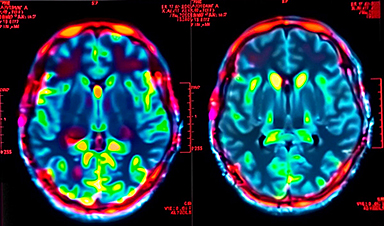
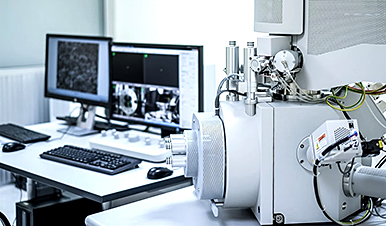
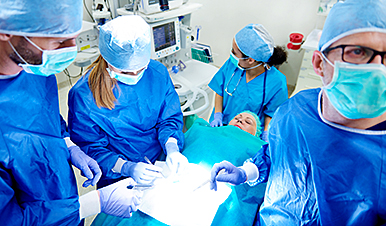
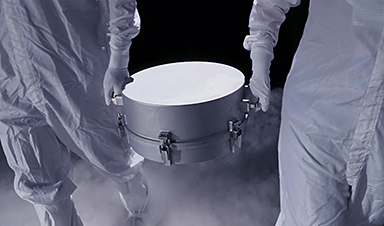





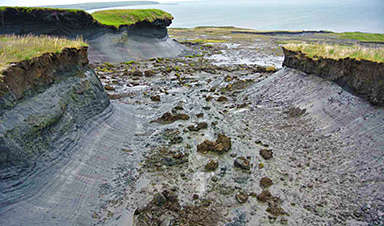


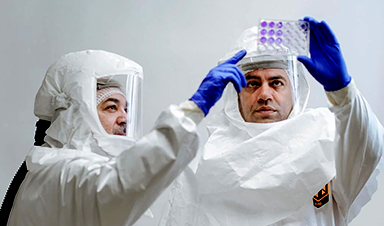








Leave A Comment